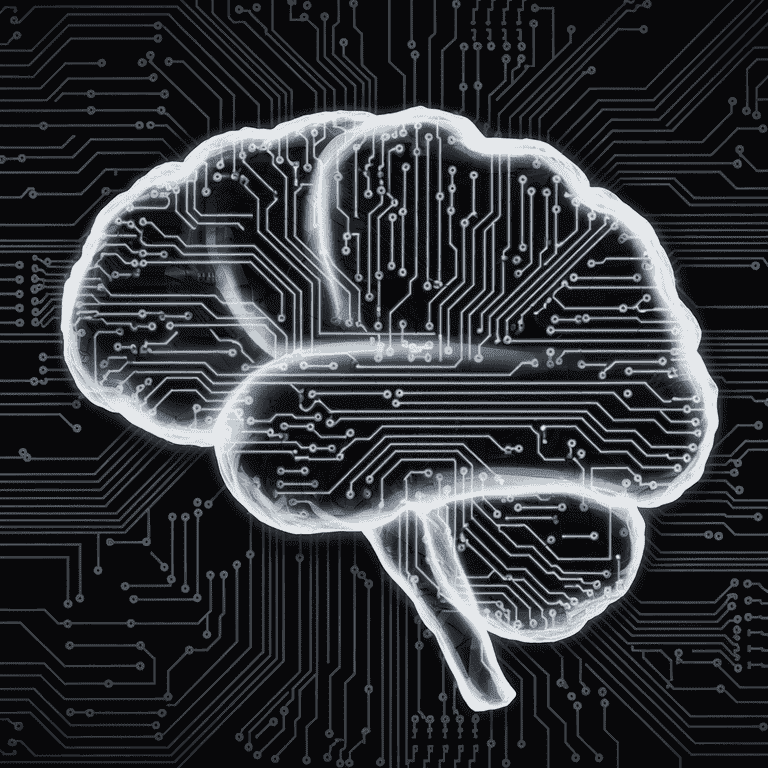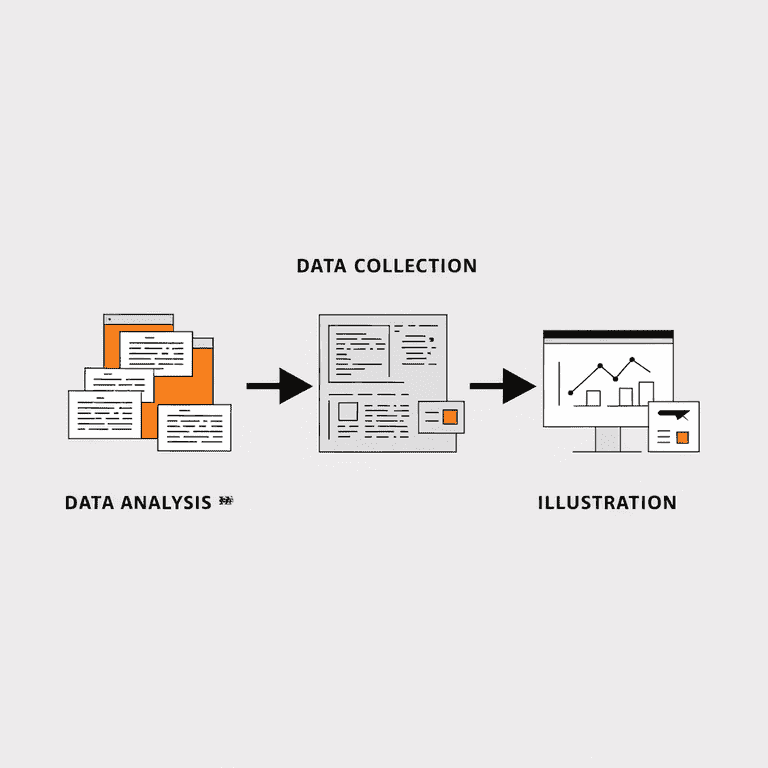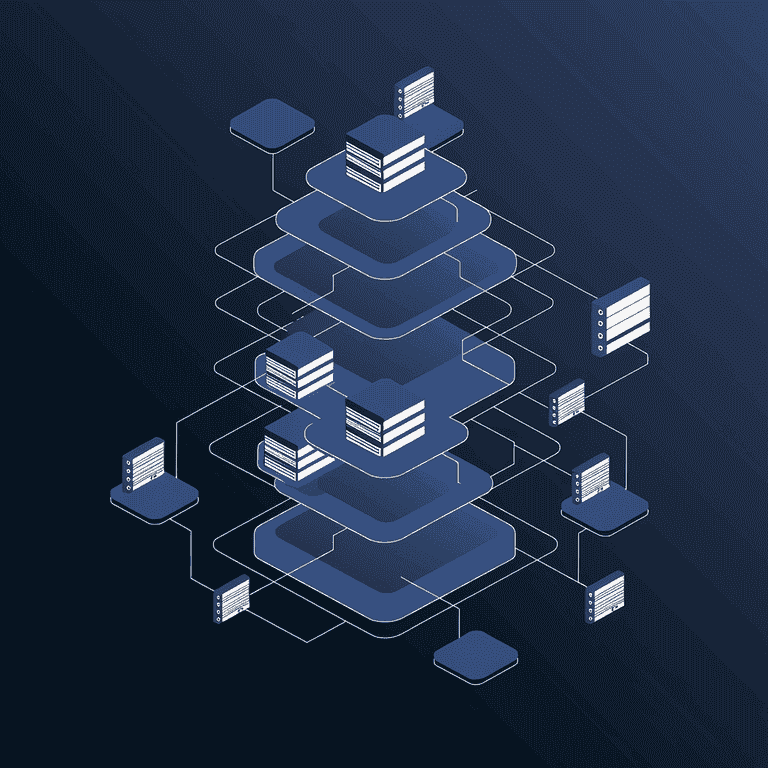The world of SEO (Search Engine Optimization) is evolving rapidly. Traditional methods of optimizing websites and content are still relevant, but the future lies in AI analytics integration. AI is now at the forefront, helping businesses make smarter, data-driven decisions in SEO. But how exactly does AI work in this space? Let’s break it down.

Defining AI Analytics Integration
AI analytics integration uses artificial intelligence technologies—machine learning and natural language processing—combined with analytical tools to help make better decisions. In SEO, this integration allows businesses to use data to automate tasks, discover trends, and optimize strategies in ways that were not possible before.
How AI is Revolutionizing SEO Decision-Making
Before AI, SEO was mainly about manual research, trial-and-error testing, and optimizing based on experience. AI can sift through large datasets, quickly analyze patterns, and suggest optimizations. This transformation helps businesses stay competitive by responding to real-time search engine algorithm changes.
The Role of Data-Driven Insights in SEO Strategy
AI analytics integration in SEO goes beyond gathering data. It’s about extracting meaningful insights from that data and applying them to drive results. This results in SEO strategies that are not just based on guesswork but on facts—empowering businesses to make smarter decisions that lead to better rankings, traffic, and conversions.
The Need for AI in SEO
Staying ahead of SEO trends is a challenge in a fast-paced digital landscape. Here’s why AI is becoming an essential part of SEO strategies.
Traditional SEO Methods vs. AI-Driven Approaches
Traditional SEO often involves manual keyword research, content creation, link building, and performance monitoring. While these methods can work, they are usually time-consuming and prone to human error. Conversely, AI automates many of these tasks, making processes faster, more efficient, and more precise.
For example, AI can analyze search trends and competitor strategies in real time, allowing businesses to adjust their SEO tactics instantly. AI also makes it possible to predict which keywords will perform best before you even target them.
Challenges in SEO Decision-Making without AI
Without AI, SEO decision-making relies heavily on human judgment, which available resources and experience can limit. Due to time constraints, SEO professionals might miss essential trends, overlook significant opportunities, or delay necessary optimizations. AI overcomes these limitations by processing vast amounts of data quickly and accurately.
Benefits of AI Analytics in SEO Optimization
The benefits of integrating AI analytics in SEO are clear:
- Improved Efficiency: AI automates tasks that would otherwise take hours or even days, allowing SEO teams time to focus on strategy.
- Data-Driven Insights: AI provides actionable insights from complex data sets, enabling more informed decisions.
- Real-Time Adjustments: AI tools can monitor performance continuously and recommend changes on the fly.
- Predictive Analytics: AI can forecast SEO trends, helping businesses stay ahead of the curve.
AI doesn’t just make SEO more efficient; it makes it more innovative and more dynamic.

Key Components of AI Analytics Integration in SEO
Understanding the key components of AI analytics integration is essential to truly harnessing the power of AI in SEO. Here are the main areas that drive this transformation.
Machine Learning and Predictive Analytics
Machine learning algorithms are at the heart of AI analytics. They can analyze vast amounts of data, recognize patterns, and make predictions. For SEO, this means forecasting search trends, identifying emerging keywords, and even predicting changes in search engine algorithms.
Natural Language Processing for Content Optimization
Natural Language Processing (NLP) allows AI to understand, interpret, and generate human language. In SEO, NLP helps AI analyze the relevance and quality of content by understanding context, semantics, and user intent. This ability makes it easier for AI tools to recommend content optimization strategies and generate high-quality SEO-friendly content.
Data Visualization and Reporting Tools
AI doesn’t just gather data; it makes it easy to interpret. AI-powered data visualization tools can present complex data in simple, actionable formats. Interactive dashboards and real-time reporting help SEO teams track performance, identify issues and refine strategies. These visual tools break down the data, allowing SEO experts to focus on what matters most.
Integration of AI Tools with SEO Platforms
Integrating AI with popular SEO platforms (such as Google Analytics, Ahrefs, and SEMrush) allows businesses to gain a more comprehensive view of their SEO efforts. AI seamlessly interacts with these tools to provide automated recommendations, track performance, and make changes without manual intervention.
AI Analytics for Keyword Research and Optimization
Keyword research is the backbone of any SEO strategy. With AI, this process becomes more streamlined and accurate.
Automating Keyword Discovery with AI
AI tools can rapidly sift through massive datasets to identify high-performing keywords, long-tail variations, and emerging trends. By analyzing user behavior, competitors, and search patterns, AI helps uncover keywords that would take traditional methods much longer to discover.
AI-Powered Keyword Analysis and Search Intent Understanding
AI’s ability to analyze user search intent is invaluable. Instead of focusing on keyword volume, AI can determine the user’s underlying goal behind a search. Whether the user is looking for information, purchasing, or seeking a service, AI can recommend keywords that align with these intents.
Predicting Keyword Trends and Search Volume Changes
AI analytics tools can forecast changes in keyword performance, allowing businesses to stay proactive. By analyzing historical data and market trends, AI can predict which keywords will rise in search volume, enabling businesses to target high-value keywords early on.
AI-Driven Content Strategy and Creation
Creating high-quality, SEO-optimized content is one of the most critical aspects of an effective SEO strategy. AI has made this process faster and more intelligent, allowing businesses to produce content that resonates with users and search engines.
Content Gap Analysis Using AI
One key way AI improves content strategy is by identifying content gaps. AI tools can analyze your existing content and compare it with your competitors’ offerings. By identifying missing topics or under-targeted keywords, AI can help you create content that fills these gaps, giving your site a competitive edge.
For example, if your competitors rank for specific keywords you haven’t addressed, AI can flag these areas. This allows you to stay ahead by creating content that aligns with search demand and audience interest.
AI Tools for Optimizing Content for SEO
Once the content is created, AI can further enhance it by optimizing it for SEO. AI tools analyze your content to ensure it includes keywords, maintains proper keyword density, and aligns with SEO best practices. These tools can also suggest improvements for meta tags, headings, and internal linking structures.
Some AI tools can even provide recommendations for readability, ensuring that your content appeals to search engines and users. With these insights, your content becomes more likely to rank higher and engage visitors longer.
Personalizing Content Recommendations with AI
Personalization is becoming increasingly important in SEO, and AI is crucial in tailoring content to different audience segments. By analyzing user behavior and preferences, AI can suggest personalized content recommendations.
For example, AI can suggest specific blog posts or product pages based on a user’s previous searches or browsing history. Personalization improves user experience and increases the likelihood of conversions, which is essential for SEO success.

AI in Link Building and Backlink Analysis
Backlinks are a significant factor in SEO rankings. AI is transforming how link-building strategies are devised and executed, making this process more effective and targeted.
Enhancing Backlink Strategies with AI Analytics
AI helps businesses identify high-quality backlinks that can boost site authority. By analyzing competitors’ link profiles and websites in the same industry, AI tools can pinpoint the best opportunities for acquiring valuable backlinks. This reduces the guesswork and manual labor involved in traditional link-building campaigns.
AI can also suggest outreach strategies, such as which sites to target for backlink requests, improving the overall effectiveness of link-building efforts.
Identifying High-Quality Link Opportunities Using AI
Not all backlinks are created equal. AI’s ability to assess the quality of a backlink is crucial. AI tools analyze various factors—such as domain authority, relevance, and trustworthiness—to ensure that the backlinks you acquire will improve your SEO standing.
Additionally, AI can track the effectiveness of backlinks over time, helping you refine your strategy by identifying which links provide the most benefit.
Monitoring Backlink Profiles with AI-Driven Insights
Once backlinks are in place, it’s essential to monitor their performance. AI tools can track the health of your backlink profile and alert you to any toxic or low-quality links that could harm your rankings. Regular monitoring ensures your backlink strategy remains strong and complies with search engine guidelines.
AI for Technical SEO
Technical SEO focuses on a website’s backend to ensure that search engines can crawl, index, and rank it effectively. AI is transforming technical SEO by automating optimization tasks and providing insights that help improve site performance.
Optimizing Site Structure and Crawlability with AI
AI tools can assess your website’s structure and identify areas for improvement. This includes ensuring search engines can easily crawl all pages, fix broken links, and eliminate redundant or unnecessary code. AI can also optimize the internal linking structure, helping search engines navigate the site more efficiently.
AI-powered tools can even simulate search engine crawls, giving you insights into potential issues before they affect your site’s rankings.
AI-Powered Site Speed Analysis and Improvements
Site speed is a critical factor in SEO rankings. Slow-loading websites provide a poor user experience, so AI-powered tools are often used to diagnose and fix speed issues. AI can pinpoint the elements on a page (like large images or inefficient code) that slow it down.
By automating speed optimizations, such as image compression and script minification, AI helps websites load faster without requiring manual intervention. This is essential for retaining users and improving your SEO ranking.
Predictive SEO Audits for Proactive Fixes
AI tools can conduct predictive SEO audits, automatically scanning your website for potential issues. Instead of waiting for problems, AI can identify issues before they become significant hurdles, allowing businesses to make proactive changes. This leads to fewer errors, better user experiences, and sustained SEO performance.
The Future of AI in SEO
AI is already significantly impacting SEO, but what does the future hold? AI’s role in SEO decision-making will grow even more crucial as technology evolves. Let’s explore some of the trends and innovations shaping AI’s future in SEO.
Trends and Innovations Shaping the Future of AI Analytics in SEO
- Voice Search Optimization: As voice search becomes more prevalent, AI will help optimize content for voice queries. With the rise of virtual assistants like Siri and Alexa, voice search is changing how people search online. AI tools will analyze voice search patterns, making optimizing content for conversational keywords easier.
- AI-Powered Content Creation: AI can generate content, but future developments will make AI-created content even more sophisticated. From blogs to social media posts, AI will become a more valuable tool for content creators, helping them generate SEO-friendly, high-quality content faster than ever.
- Enhanced User Experience with AI: User experience will remain at the forefront of SEO. AI will offer more advanced ways to personalize website experiences based on real-time user behavior. With predictive analytics, websites adjust content, design, and navigation in real time to match users’ needs and preferences.
- Search Engine Algorithm Advancements: AI will increasingly be integrated into search engines. Google, for example, is already using AI (like RankBrain) to better understand search intent. In the future, we expect search engines to rely more heavily on AI to deliver more personalized, relevant search results.
- AI-Driven Predictive SEO: Predictive analytics will become more powerful, enabling businesses to forecast future SEO trends and changes. SEO strategies will become even more proactive, with AI tools predicting shifts in search engine algorithms and user behavior, helping businesses stay ahead of the competition.
How AI Will Continue to Transform SEO Decision-Making
AI will continue transforming SEO decision-making by making it more data-driven, automated, and responsive. As AI tools become more sophisticated, SEO professionals will have access to deeper insights, better predictions, and more effective optimizations.
- More intelligent Keyword Targeting: AI’s understanding of user intent will lead to more precise keyword targeting. Rather than just focusing on search volume, AI will analyze contextual signals to identify which keywords best align with a user’s needs.
- Automation of Routine Tasks: The more routine tasks of SEO—like content optimization, link-building outreach, and technical audits—will be increasingly automated by AI. This will free up SEO professionals to focus on more strategic, creative tasks.
- Faster Adaptation to Algorithm Updates: With AI monitoring search engine algorithms and user behavior in real-time, businesses can react to changes more quickly. AI will help SEO teams understand how changes in search algorithms affect their rankings and provide recommendations for immediate improvements.
- Cross-Platform Optimization: As AI tools become more integrated across platforms (such as social media, websites, and eCommerce platforms), SEO strategies will be able to work across all digital channels seamlessly. AI will provide insights that connect SEO efforts with social media engagement, content performance and paid advertising to create a holistic digital strategy.
Breaking It All Down
AI analytics integration has already made a significant impact on SEO, and its influence is only going to grow. By embracing AI-driven insights and automation, businesses can create more efficient, effective, and personalized SEO strategies.
From automating keyword research to improving user experience, AI tools offer countless opportunities to enhance SEO performance. However, as with any technology, staying informed and using AI to complement human expertise is essential. AI should empower your SEO team to make smarter decisions, not replace them.
As AI continues to evolve, the possibilities for SEO optimization are endless. By staying ahead of AI trends and best practices, businesses can unlock more innovative strategies that lead to long-term SEO success.
Embrace the future of SEO with AI and watch your SEO efforts soar!
Frequently Asked Questions
What is the difference between AI and traditional SEO methods?
Traditional SEO methods rely heavily on manual research, trial and error, and experience. Conversely, AI uses machine learning algorithms, predictive analytics, and natural language processing to analyze large datasets, predict trends, and make recommendations. This leads to faster decision-making, more accurate predictions, and a more efficient SEO strategy.
How can AI help with SEO content creation?
AI tools can analyze existing content and suggest SEO optimizations, such as keyword usage, readability, and structure. Additionally, AI can help identify content gaps by comparing your website to competitors and recommending new topics. Some AI tools can even generate content automatically, making the process faster and more efficient.
Are AI tools expensive to implement for SEO?
The cost of AI tools for SEO can vary depending on their complexity and functionality. While some AI-driven SEO tools are affordable for small businesses, others—especially those with more advanced features—can be expensive. It’s essential to assess your business needs and choose the right tools that fit your budget and goals.
Can AI completely replace human SEO professionals?
While AI can automate many aspects of SEO, it doesn’t replace human professionals. AI tools provide insights and suggestions based on data, but human expertise is still needed to interpret these insights, create personalized strategies, and make decisions based on the broader business context. AI should be seen as a tool to augment human effort, not replace it.
How does AI improve keyword research?
AI enhances keyword research by automating the discovery of relevant keywords, analyzing search trends, and understanding search intent. AI can also predict which keywords are likely to rise in search volume, helping businesses target keywords early on. Additionally, AI tools can analyze competitors’ keyword strategies to identify opportunities that may have been overlooked.
What are some common mistakes when using AI for SEO?
Some common mistakes when integrating AI into SEO include over-relying on automation, not customizing AI tools to align with specific business goals, and neglecting ongoing monitoring and optimization. It’s important to use AI to complement human expertise and to keep a close eye on how AI-driven strategies perform.
How can AI improve user experience (UX) on my website?
AI improves user experience by analyzing visitor behavior, identifying pain points, and suggesting improvements. For example, AI can detect where users drop off in the sales funnel or which pages they find most engaging. AI can also personalize content and design based on user preferences, making the site more intuitive and easier to navigate.
What is the role of AI in link building?
AI aids in link building by identifying high-quality backlink opportunities, analyzing competitor link profiles, and automating outreach efforts. It can also evaluate the relevance and authority of potential websites for backlinks, ensuring that businesses acquire valuable links that will boost SEO performance.
Can AI predict changes in search engine algorithms?
AI can’t predict algorithm changes with complete certainty. Still, it can analyze historical data, track shifts in search patterns, and identify emerging trends that may indicate changes in search engine algorithms. By continuously monitoring these factors, AI helps businesses stay ahead of the curve and adjust their SEO strategies proactively.
How does AI handle content personalization?
AI personalizes content by analyzing user behavior, preferences, and previous interactions with the site. It can recommend relevant products, blog posts, or offers based on a user’s past activity, increasing engagement and reducing bounce rates. Personalized content also helps improve SEO metrics, as search engines favor websites that offer tailored experiences for users.
Is AI necessary for every business's SEO strategy?
While AI can provide significant advantages, not every business needs to implement AI in its SEO strategy. Small companies or those with limited resources may find traditional SEO methods sufficient. However, integrating AI can be a game-changer for businesses looking to scale, stay ahead of the competition, or leverage data more effectively.
How can I measure the success of AI integration in my SEO strategy?
To measure AI’s success in your SEO strategy, track key metrics such as organic traffic, keyword rankings, bounce rates, and conversion rates. AI tools often provide detailed reports and analytics, allowing you to see how well your SEO efforts are performing. Review these metrics regularly to assess AI’s impact and adjust your strategy as needed.
What are the ethical concerns around using AI for SEO?
One key ethical concern is data privacy. AI requires large amounts of user data to function effectively, so businesses must comply with privacy regulations like GDPR and use data responsibly. Additionally, over-relying on AI for SEO can lead to a lack of human creativity and critical thinking, which is crucial for a balanced and ethical SEO strategy.
Offsite Resources
Here are some offsite resources related to AI analytics integration for SEO that readers may find useful in expanding their knowledge:
Moz – https://moz.com/
Moz offers great SEO resources, including tools and blogs on the latest SEO trends, including AI analytics integration.
Search Engine Journal – https://www.searchenginejournal.com/
Search Engine Journal features up-to-date articles and guides on AI’s role in SEO and various digital marketing strategies.
SEMrush – https://www.semrush.com/
SEMrush is a comprehensive SEO tool that integrates AI-powered insights for improving SEO decision-making, content strategy, and link-building.
HubSpot – https://www.hubspot.com/
HubSpot offers articles, tools, and resources on content creation, inbound marketing, and AI-driven SEO strategies.
Ahrefs – https://ahrefs.com/
Ahrefs provides tools and educational materials for SEO, including resources on how to use AI in content optimization and backlink strategies.
Neil Patel – https://neilpatel.com/
Neil Patel’s website offers valuable SEO tips, including AI integration, to improve your digital marketing strategies and rank higher.
Yoast – https://yoast.com/
Yoast is a leading SEO plugin for WordPress, and its site includes helpful insights on AI’s role in content optimization and technical SEO.

What's Next?
As a reminder to all small business owners, the SEO tips shared on this page were provided by our co-founder, Matt LaClear. Since 2009, Matt has worked on over 13,277 SEO campaigns for clients, gaining invaluable experience and insights in the process.
To help you further improve your SEO efforts, Matt is offering a special opportunity— a free custom SEO strategy call. This is a great chance to tap into his expertise and receive personalized advice tailored to your business’s needs. Don’t miss out on this valuable offer!

